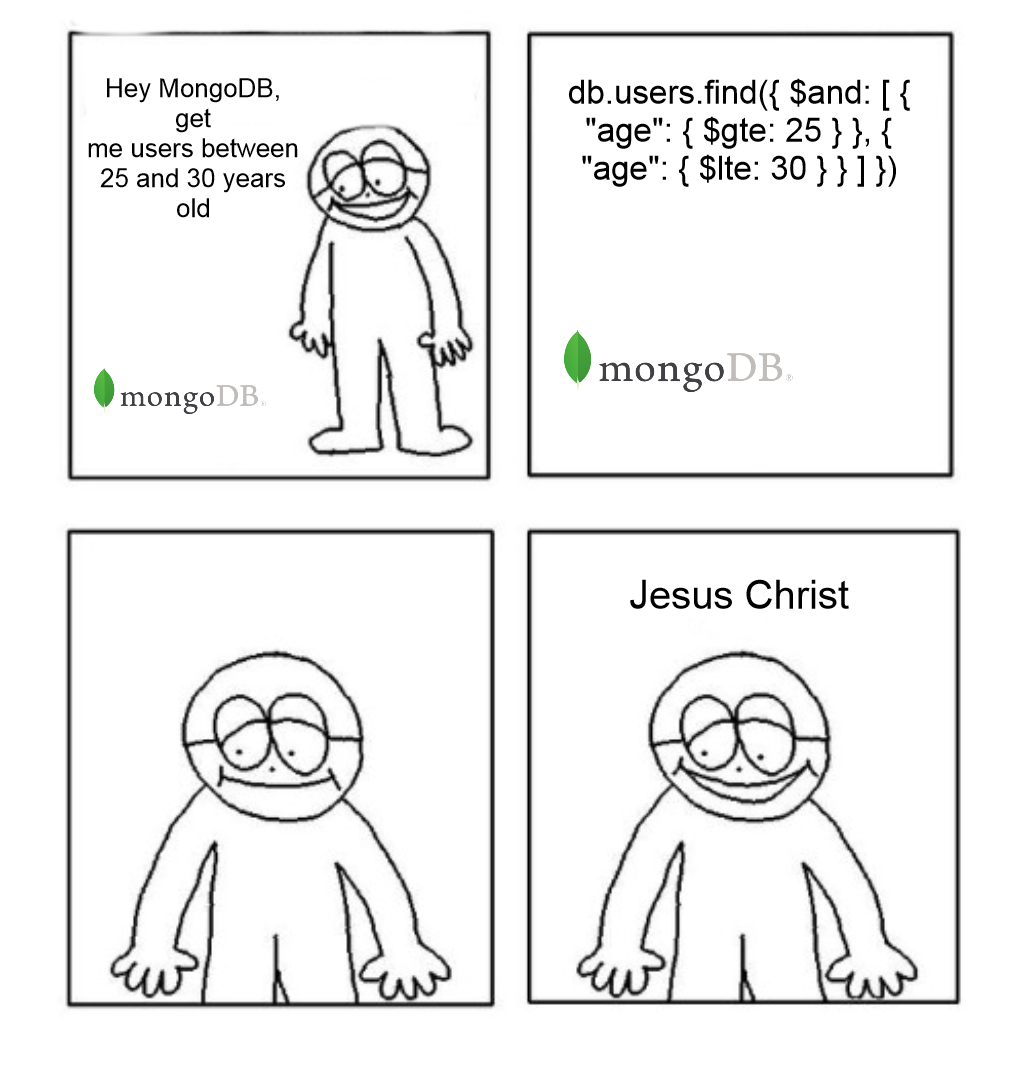this post was submitted on 26 Oct 2023
285 points (96.4% liked)
SQL - any and all
307 readers
1 users here now
For discussion about SQL and databases. All versions welcome.
- MSSQL
- PostgreSQL
- MariaDB
- SQLite
- etc...
founded 2 years ago
MODERATORS
you are viewing a single comment's thread
view the rest of the comments
view the rest of the comments

I'm not contradicting anything. I think someone who's 25 years and 11 months should not be returned from the query. Hence, the strict inequality
But you absolutely are contradicting yourself…..
they are between the ages of 25 and 30 meaning your information would be incorrect or wrong… and it’s not even a debate since they are in fact between he age range.
It’s like saying 25.2 isn’t part of 25, and that’s not up for debate, and if it is well you’re not here to discuss in good faith now are you?
Okay, since you're starting to throw insults via this angle, let's try to make my case via a different route
Do you think the db is storing your age as an int or as a float? We know from the given information that it is stored as a singular number
So, I'm assuming it's as an int, which means that until you're 26, you're still 25. If you're 25 and 11 months, that's still 25 years old, and stored as such. The strict inequality should therefore not put it in the range 25 < X < 30
If it’s a singular number and not a rounded number. Which we could also assume here…. The number 25 would always be between 25 and 30, if you’re using rounded numbers, there is a possibility that 25 wouldn’t be between 25 and 30 since you would need to account for 24.5 and greater numbers rounded to it.
And with age, you never round up. So according to these well established rules over time. What could it be other than included in “between 25-30” unless it’s not age or a rounded number which you don’t do for age?
Okay, wait, what do you think the word "between" means?
I explained that if you wouldn’t take a small section out of context.
I don't. This is the crux of the argument
The integer 25 does not lie in the open interval (25,30). And someone with at least 25 years on him but not yet 26 has an integer age of 25.
Again, we're no working with the normal Euclidean topology here, but with the Euclidean topology projected on the integers
That’s a whole lot of words for, “I was caught contradicting and lying and now am now talking out of my ass”
The crux of the argument was explained using all possible outcomes, and you still can’t comprehend it. It’s not an integer it’s age, if you’ve stored it as an integer, you’ve done fucked up in every way possible.
You accused me of not talking in good faith before, but I'm not the one throwing insults.
Since you seem unwilling to discuss this any further, I'll halt the conversation too